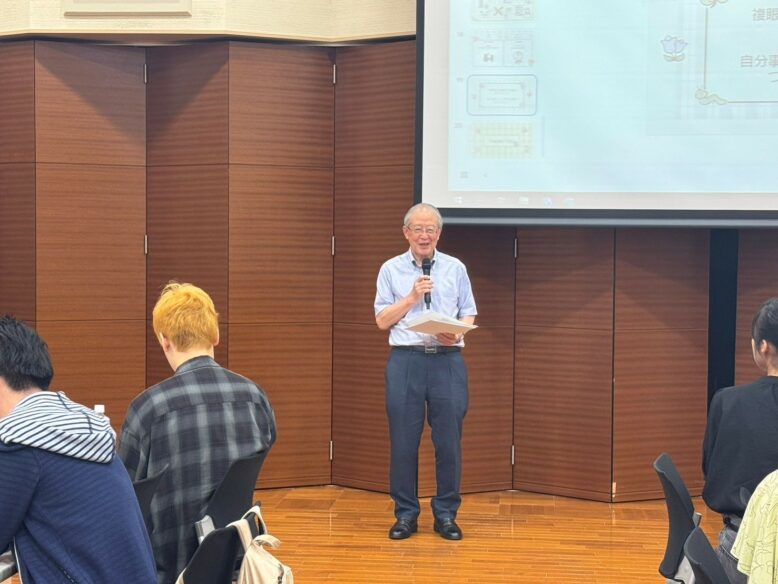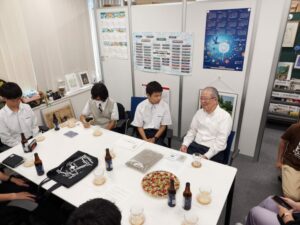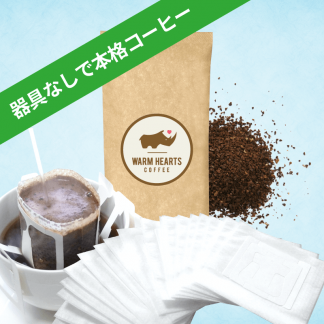Our Malawi coffee is classified as “Specialty Coffee.” We consulted with Ataka Trading Co., Ltd., our coffee supplier, to understand how this classification is determined and how the importer plans to brand and market such coffee.

Learn more about the lecture that invited Morimori Araki, president of Ataka International Trade Co., Ltd. here.
What is Specialty Coffee?
The definition of specialty coffee involves meeting a variety of specific requirements and conditions. When these are fulfilled, consumers (coffee drinkers) are likely to find the coffee highly satisfying and delicious, qualifying it as specialty coffee. There are also objective criteria for its evaluation. The most important factor is ensuring that every step of the process, from raw beans to the final cup, is carried out correctly.
This process involves several key players: farmers, importers (wholesalers), roasters (manufacturers), retailers (both online and in stores), and consumers. The factors that contribute to a delicious cup of coffee for consumers are typically:
- 60% from the quality of the raw coffee beans.
- 10% from the importer’s distribution process.
- 30% from the roasting and production methods used by roasters.These elements are essential to producing a high-quality cup of coffee.
Initiatives of Ataka Trading Co., Ltd.
Mr. Araki, president of Ataka Trading, mentioned that, when purchasing raw beans, they ensure proper cultivation management, harvesting, processing, screening, and quality control. The aim is to select beans with minimal contamination and defects. They also request samples and conduct thorough wrapping procedures.
The key points they evaluate are:
- Taste: It should not have any unpleasant flavors.
- Refining methods: The flavor should reflect the differences in processing methods.
- Price: The purchase price should be deemed appropriate.
Ultimately, the overall market trend helps determine whether the price is suitable for customers, ensuring the coffee remains appealing for repeat purchases.
Challenges for the future specialty coffee market
In the distribution process from farmers to roasters (manufacturers), the coffee is indeed traded as specialty coffee.
The biggest challenge lies with retail stores (both online and physical). This involves the process of selling to consumers. While retailers promote their offerings as specialty coffee, many times, this advertising has not translated into increased sales, and the market share of specialty coffee has remained sluggish. Ultimately, coffee is a matter of personal preference, and the perceived quality is determined by the consumer.
Generally, coffee is appreciated for its balance of aroma, acidity, bitterness, and richness. Ideally, it should leave the drinker wanting a second cup. Despite not always being marketed successfully as specialty coffee, efforts continue to explore how to effectively appeal to consumers and expand the market for high-quality specialty coffee.
Branding as Warm Hearts Coffee
In the meantime, the role of our Warm Hearts Coffee Club is to enhance the specialty coffee market by adding social value over time. Warm Hearts Coffee Club is currently collaborating with Ataka Trading and a group of young students who will play a key role in shaping the future of the coffee industry, as well as exploring the relationship between consumer culture and the planet.

Learn more about the activities with students from here.
As our sales support school lunches in Malawi, we hope to expand this initiative from Malawi to other parts of Africa, where the population is growing. This expansion aims to enhance the benefits of delicious coffee and create a brand that is socially responsible and widely accepted.

Learn more about the Warm Hearts Coffee Club and the company’s activities here.
About Warm Hearts Coffee Club
A donation-type coffee brand by Seibo, a non-profit organization that supports school lunches in Malawi, Africa.
In Japan, we are not only selling coffee, but also cooperating with schools to deepen our learning with students from the perspective of international support, supply chain, and marketing. It has also received approval from many supporting companies, including Ataka Trading Co., Ltd., which is engaged in the coffee import business.


